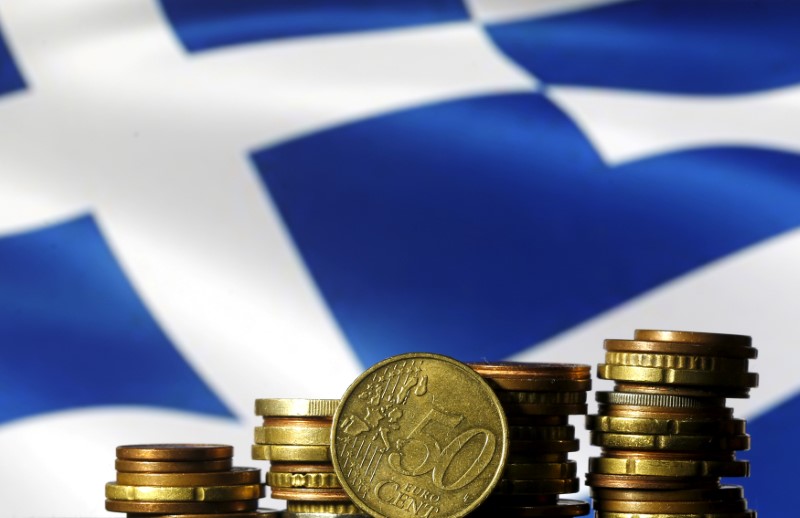By George Georgiopoulos
ATHENS (Reuters) - Greece's economy expanded in the first three months of 2017, its statistics service said on Friday, upwardly revising a previous flash estimate in May that showed a 0.1 percent quarterly contraction.
Data showed the economy grew by 0.4 percent in January-to-March compared to the final quarter of 2016 when gross domestic product contracted by 1.1 percent.
The seasonally adjusted data also showed that Greece's economy grew at a year-on-year pace of 0.4 percent in the first quarter, after contracting by 1.0 percent in the fourth quarter of 2016, with May's flash -0.5 percent estimate also revised upwards.
"Τhe readings are better as we had more accurate estimates in the time that has intervened after the flash projections," said a senior official at ELSTAT.
The government, keen to wrap up a bailout review and get more clarity on further debt relief from its official lenders, has downwardly revised this year's growth projection to 1.8 percent from 2.7 percent previously.
It expects the recovery to strengthen next year with gross domestic product growing by 2.4 percent. The EU Commission has also cut its economic growth forecast for Greece to 2.1 percent growth this year from 2.7 percent previously.
A recovery will be key to bringing down an unemployment rate of nearly 23 percent, the highest in the euro zone, and attaining a projected primary budget surplus of 1.75 percent - excluding debt servicing outlays - demanded by Greece's creditors.
The main drivers behind the rise in first-quarter economic output were stronger consumption and gross capital formation, offsetting a negative contribution from net exports.
Consumption rose 0.4 percent compared to the fourth quarter, with imports rising by 4.5 percent while exports declined 2.3 percent. Gross capital formation jumped 48.3 percent from the previous quarter.
"Based on this revision, the government baseline scenario of 1.8 percent full-year growth in 2017 looks pretty attainable," said National Bank economist Nikos Magginas.
"The surprise was that consumption proved more resilient than expected during a difficult quarter marked by uncertainty over the bailout review talks."

Had there been a positive contribution from net exports, we would have seen growth of more than 1.0 percent in the first three months, he said.